Berita
The 6th International Conference on Biosciences (ICoBio) 2025
- 2 Desember 2024
- Terakhir diubah pada 26 Juni 2025
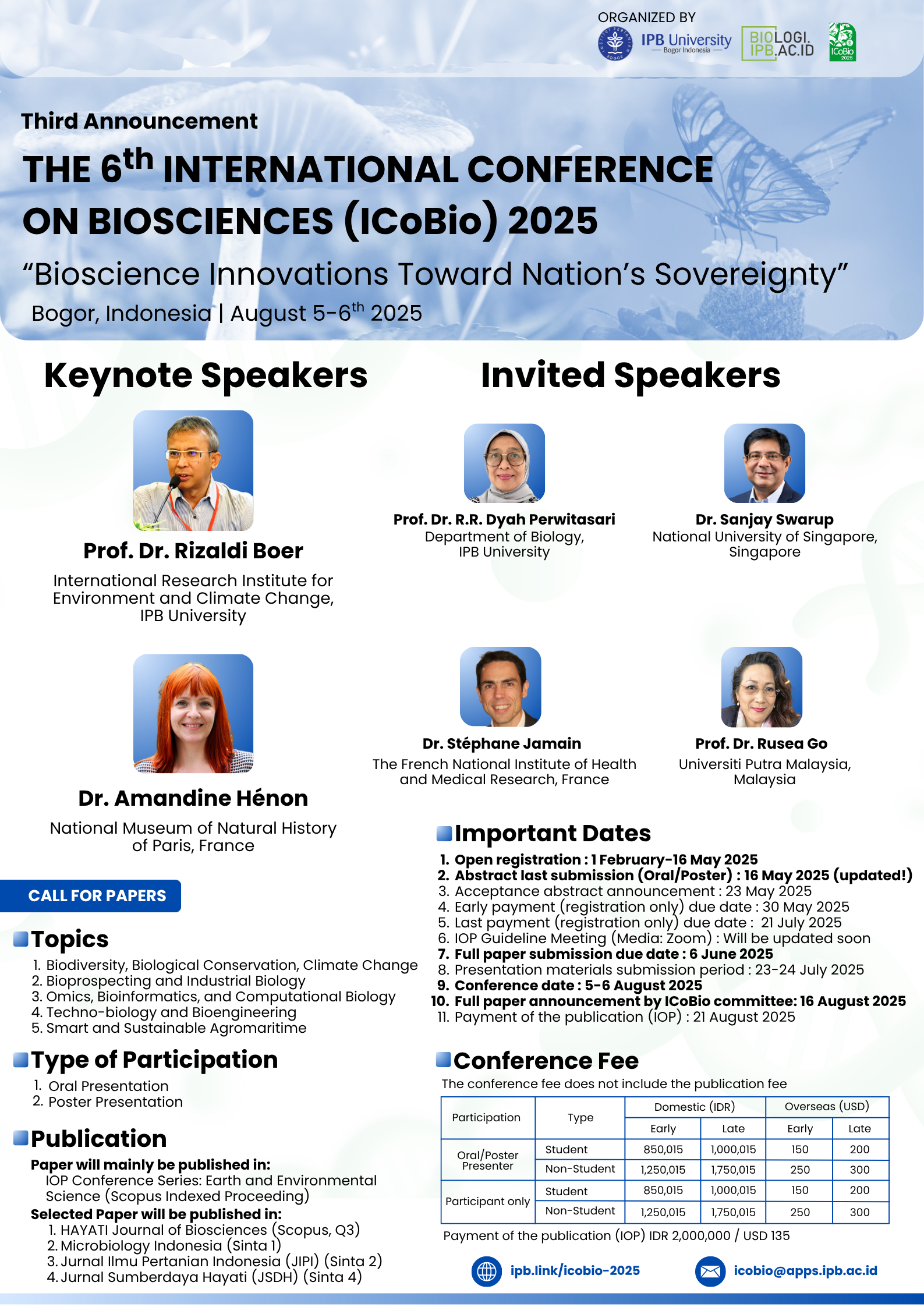
The 6th International Conference on Biosciences (ICoBio) 2025
Theme: Bioscience Innovations Toward Nation’s Sovereignty
Date: 5-6 August 2025
On-Site Event
Committee: Department of Biology, IPB University (email: icobio@apps.ipb.ac.id)
Announcement
- Extended abstract submission: until 16 May 2025

- Open registration : 1 February–16 May 2025
- Abstract last submission (Oral/Poster) :
30 April 202516 May 2025 - Acceptance abstract announcement : 24 May 2025
- Early payment (registration only) due date : 30 May 2025
- Last payment (registration only) due date : 21 July 2025
- IOP Guideline Meeting (Media: Zoom) : will be updated soon
- Full paper submission due date: 6 June 2025
- Accepted full paper: 25 July 2025
- Presentation materials submission : 23–24 July 2025
- Conference date : 5–6 August 2025
- Full paper announcement by ICoBio committee:
21 August 202516 August 2025 - Payment of the publication (IOP) :
30 August 202521 August 2025 - Publish in the publication (IOP): October 2025

- Abstract template : https://ipb.link/abstract-template-icobio-2025 or here
- Registration and abstract submission : https://ipb.link/reg-icobio-2025 or here
- Poster Guideline : https://ipb.link/poster-guideline-icobio-2025 or here
- Payment confirmation form : https://ipb.link/payment-form-icobio-2025 or here
- Template and guideline for IOP proceeding manuscript : https://ipb.link/template-guideline-iop-icobio-2025 or here
- Template for publication ethics statement : https://ipb.link/template-publication-ethics-icobio-2025 or here
- Full paper submission : https://ipb.link/fullpaper-submission-icobio2025 or here
- IOP guideline meeting (Media: Zoom) : https://ipb-university.zoom.us/j/98533182416?pwd=8ksXCa7r64h5vnQUnatGk3uNMAJuw5.1
- Recording IOP Guideline Meeting : https://ipb-university.zoom.us/rec/share/StVP4wVvnHyLgzSrIZFAfn9kfj5SM3l4F8EQbcWI8khaZJDtuVQLD26_Ei5BBycv.gv7yS_GGcg4s3q1t. Passcode: #kdzS11F
- Presentation material submission: will be updated soon
- Link morresier ICoBio: https://ipb.link/morressier-icobio2025
- Program Book (Conference schedule and abstracts) : will be updated soon
 It is undeniable that biosciences play a pivotal role in every aspect of life. Biosciences have been translated into various inter- and trans-disciplinary fields, leading to practical solutions to sustainable development goals (SDGs).
It is undeniable that biosciences play a pivotal role in every aspect of life. Biosciences have been translated into various inter- and trans-disciplinary fields, leading to practical solutions to sustainable development goals (SDGs).
Indeed, today we are facing severe issues including poverty, food and feed security, healthcare issues, energy scarcity, global warming, biodiversity loss, and others. Integration of the biological field with engineering, information technology, the economy, and social sciences may serve as potential strategies to combat such challenging issues.
As part of the global scientific communities, Department of Biology, IPB University facilitates researcher, practitioners, students, academicians related to the field of biosciences worldwide to gather and share information, ideas, knowledge, and research results on the 6th International Conference on Biosciences (ICoBio), held on 5-6 August 2025. This year, ICoBio will be held on site with the main theme of "Bioscience Innovations Toward Nation’s Sovereignty", which will serve as a fruitful atmosphere of a scientific meeting that represents our best efforts in facing today's challenging issues.


The conference fee above DOES NOT include the publication fee. The publication fee will be charged based on the IOP publication fee or the journal's article processing charge (to be informed after the full manuscript is reviewed).
The participant will be requested to pay the conference fee after the abstract acceptance announcement (23 May 2025), and the payment due date:
- Early payment (registration only) due date : 30 May 2025
- Last payment (registration only) due date : 21 July 2025
- Payment of the publication (IOP) : 30 August 2025
Bank: BNI
Bank account number: 3898498
Account: REKTOR IPB C/Q KS-FMIPA
Swift Code: BNINIDJABGR (for an overseas payment system).
For overseas participants, payment via WISE is allowed (procedures: click here), then please upload proof of payment through the link: https://ipb.link/payment-form-icobio-2025
All participants are required to submit the proof of payment slip to https://ipb.link/payment-form-icobio-2025
For those international participants or students, please kindly submit a copy of:
- Student card, or
- Overseas workplace identity/passport.

Participants with papers are requested to send the abstract of the link below by 16 May 2025 at the latest. The author shall certify that the abstract submitted to the committee has not been published or presented elsewhere.
Topic:
- Biodiversity, Biological Conservation, Climate Change
- Bioprospecting and Industrial Biology
- Omics, Bioinformatics, and Computational Biology
- Techno-biology and Bioengineering
- Smart and Sustainable Agromaritime
Type of Presentation :
- Oral Presentation
- Poster Presentation
Note: The papers we have received are not necessarily accepted by the IOP. If IOP rejects the paper, the fee paid cannot be refunded.

A. Biodiversity, Biological Conservation, and Climate Change
Biodiversity and Biological Conservation become the outcome of scientific studies searching for social and economic benefits and its correlation with climate change issues. This topic includes (1) Genetic biodiversity (study at gene level); (2) Species biodiversity (the study of varieties of species in nature); (3) Ecosystem biodiversity (species diversity with their habitats); and 4). Climate change (how climate change impacted nature sustainability, biodiversity loss, and conservation biology). Biodiversity, conservation biology, and climate change issues can also be the basis to analyse and answer the sustainable development goals criteria: (1) in basic & social sciences (taken from nature's perspective and understanding); (2) as the backbone of applied sciences (agriculture, aquaculture, animal husbandry, forestry. etc.).; (3) basic development knowledge to better land-use pattern; (4) bio-resources utilisation; (5) societal and cultural context (based on local/global biodiversity); (5) human development; (6) basis of general law (biodiversity & biology as the basis of dynamic stabilisation law in complex systems).
B. Bioprospecting and Industrial Biology
Bioprospecting and industrial biology focus on the exploration of natural sources. It includes small molecules, macromolecules, and genetic materials. These natural sources can be developed into commercially valuable products in agriculture, bioremediation, health issues, cosmetics, and pharmaceutical industries. Industrial biology is mainly based on a process that uses a complete living cell or their components (bacteria, enzymes, chloroplast) to obtain desired products for a sustainable life.
C. Omics, Bioinformatics, and Computational Biology
Omics, Bioinformatics, and Computational Biology focus on the main study on how biological problems are interpreted and analysed and the application of solutions to problems using bioinformatics. The biological problems in this topic Including (1) genetics; (2) epigenetics; (3) genomics; (4) proteomics; (5) metagenomics; (6) transcriptomics; (7) phylogenetics; (8) metabolomics; (9) systems biology; (10) structural analysis; (11) molecular modelling; (12) pathway analysis; (13) computational bioengineering; (14) computational biomechanics; (15) computational bioimaging; (16) mathematical biology; and (17) theoretical biology.
D. Techno-Biology and Bioengineering
Techno-biology and bio-engineering focus on the application of technology to biosciences, such as in: biomedical/biosystem/biochemical (neurostimulator, derived stem cells, testing and measuring of nanoscale features, regenerative medicine, diagnostic tests, antimicrobial nanoparticle, tissue integrity, health monitors, nano solar cells, protein characterisation, cell phenotype; nanoparticle medicine, drug delivery); electrical/bio-synthetics (3-D Imaging, robotic, ultrasound, nanoprobes, injectable bio, material biocompatibility, embedded transceivers, thermal design of buildings); mechanical/biosensor (haptics-sensing/manipulating objects through touch, exoskeleton using an external anatomical device that supports/protects a body, body motion in harvesting energy for microbial fuel cells, artificial disc/intelligence, pollution control to global warming).
E. Smart and Sustainable Agro-Maritime
Smart and sustainable agro-maritime focus on the topic includes: (1) satisfying human food and fibre need; (2) enhance environmental quality and the natural resources in land and water; (3) natural biological cycles and controls; (4) sustain the economic viability of farm operation; and (5) enhance the quality of life for farmers/fisher and society to conclude the criteria of sustainable development goals. This topic also including agro-maritime technology using the agricultural drone, satellite photography and sensors, IoT-based sensor networks, phase tracking, weather forecasts, automated irrigation, light and heat control, intelligent software analysis for pest and disease prediction, as well as soil management and other involved analytical tasks, and other agro-maritime biotechnologies.

- Paper will mainly be published in: IOP Conference Series: Earth and Environmental Science (Scopus Indexed Proceeding)
- Selected paper will be published in :
- HAYATI Journal of Biosciences - Scopus, Q3 in Agricultural and Biological Sciences
- Microbiology Indonesia - Sinta 1
- Jurnal Ilmu Pertanian Indonesia (JIPI) - Sinta 2
- Jurnal Sumberdaya Hayati (JSDH) - Sinta 4

- Keynote Speakers:
- Prof. Dr. Rizaldi Boer
Director of the Centre for Climate Risk and Opportunity Management in Southeast Asia and Pacific (CCROM-SEAP) - Dr. Amandine Hénon
Museum of Natural History (MNHN), France
- Prof. Dr. Rizaldi Boer
- Invited Speakers:
- Prof. Dr. R.R. Dyah Perwitasari, MSc (Department of Biology, IPB University)
- Dr. Sanjay Swarup (National University of Singapore, Singapore)
- Dr. Stéphane Jamain (The French National Institute of Health and Medical Research, France)
- Prof. Dr. Rusea Go (Universiti Putra Malaysia, Malaysia)

ICoBio 2023






ICoBio 2021
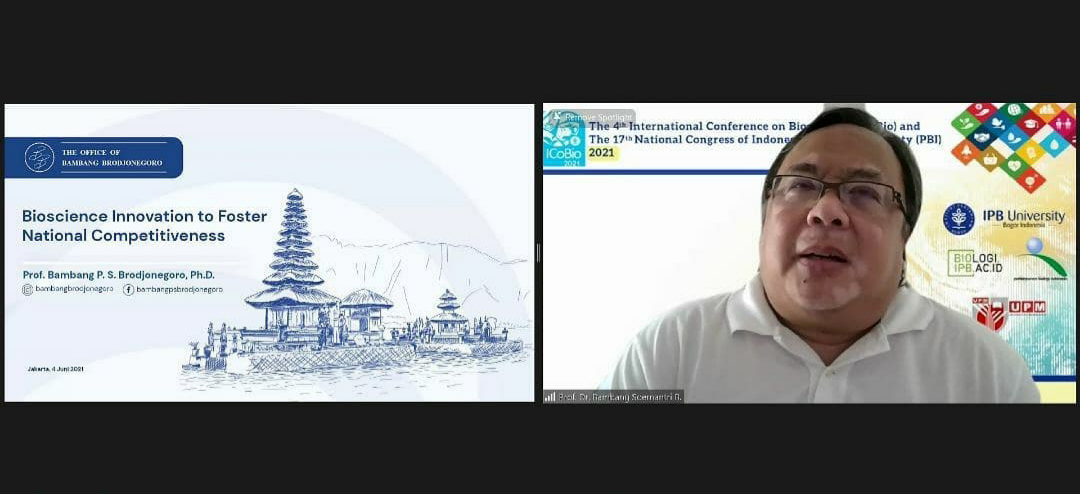
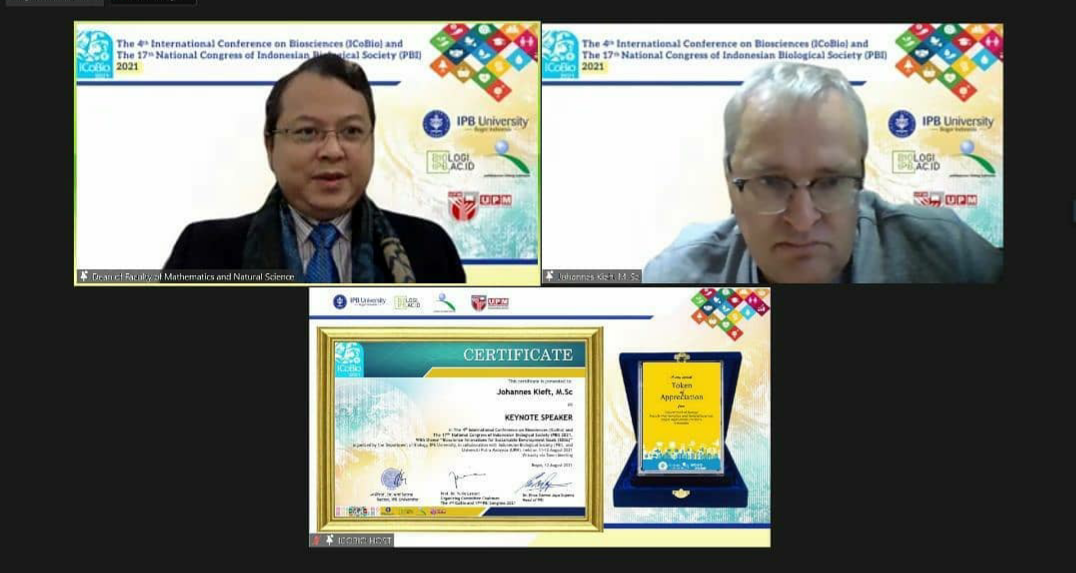
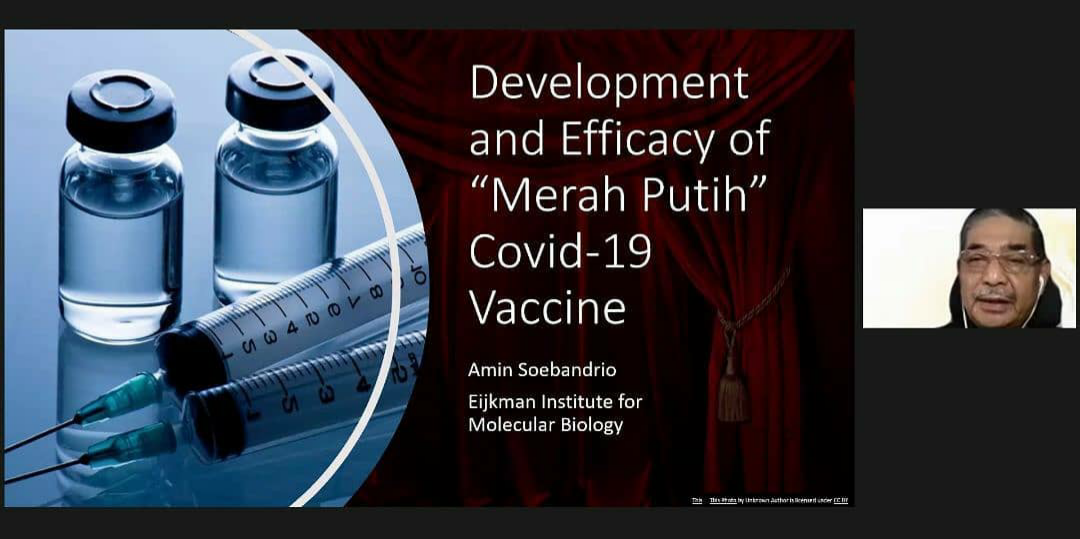
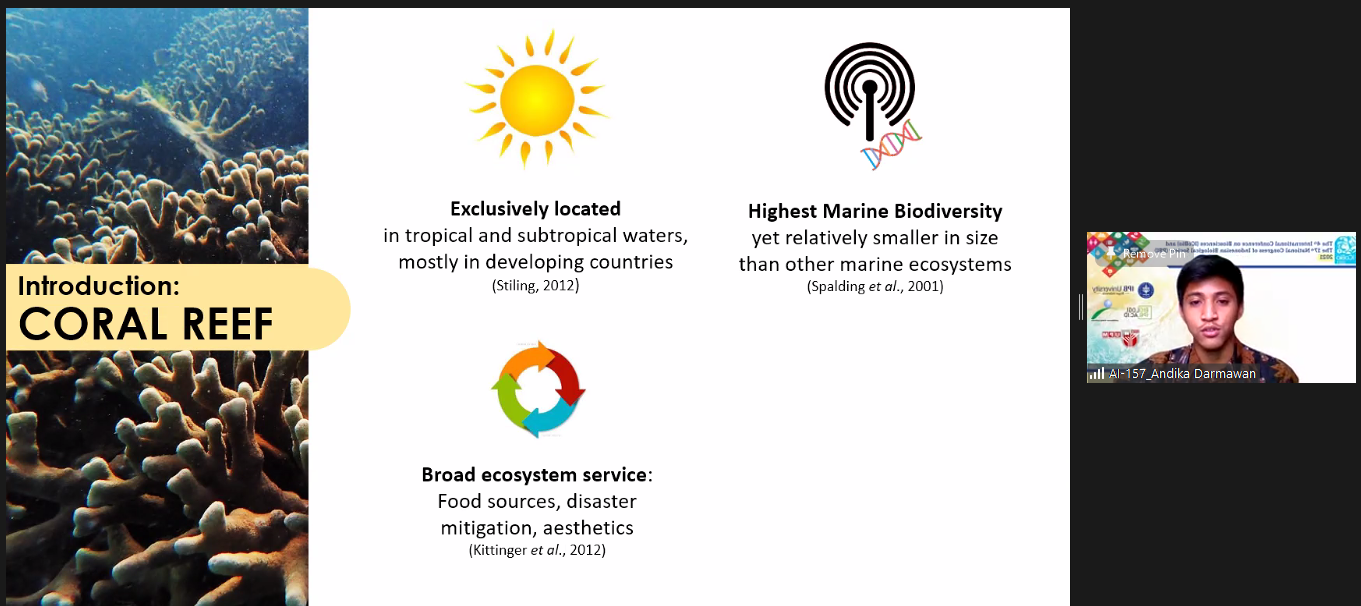
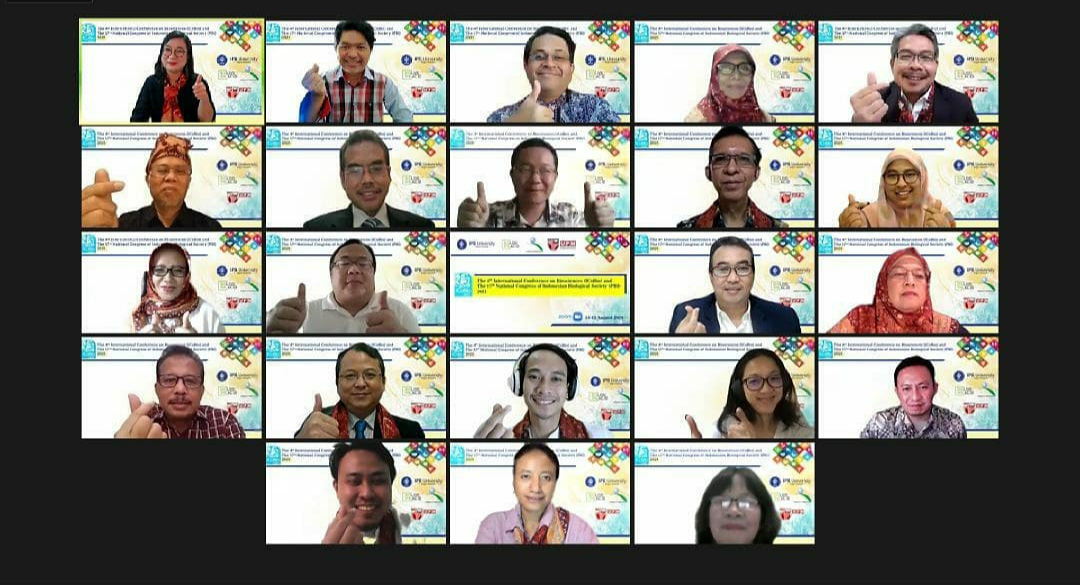
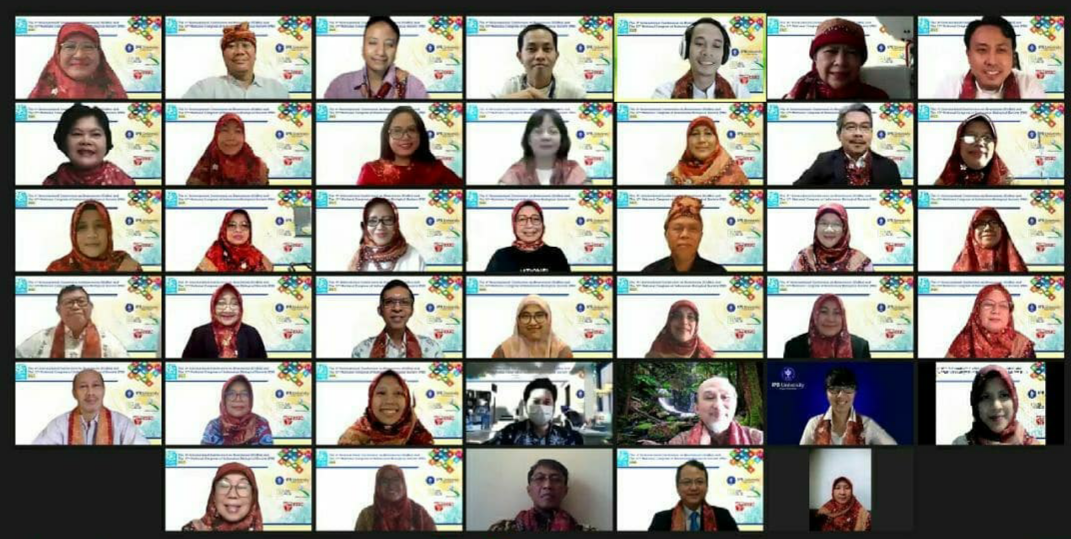
ICoBio 2019
ICoBio 2017
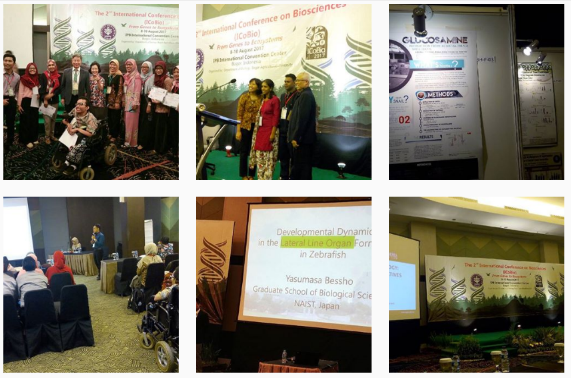
ICoBio 2015
.png)
- ICoBio 2015 | Proceeding ISBN 978-602-71168-2-5 Download Link
- ICoBio 2017 | Proceeding IOP Download Link
- ICoBio 2019 | Proceeding IOP Link
- ICoBio 2021 | Proceeding IOP Link
- ICoBio 2023 | Proceeding IOP Link






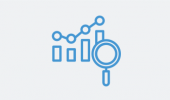
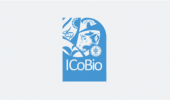
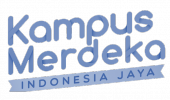






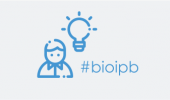


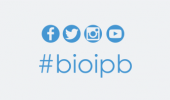



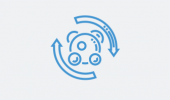
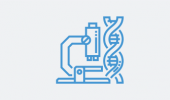

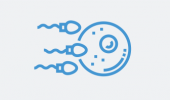


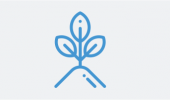


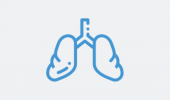













.png)




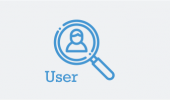



Login
LoginSitemap
map